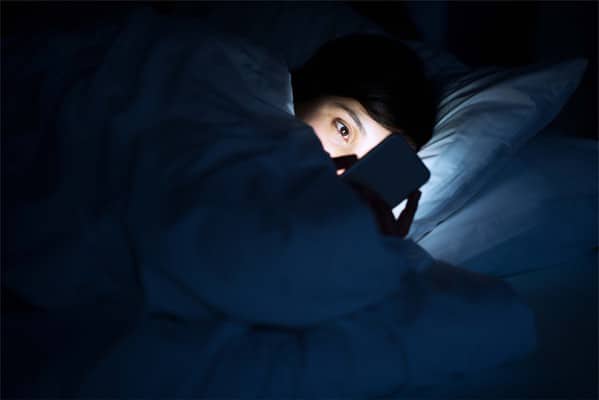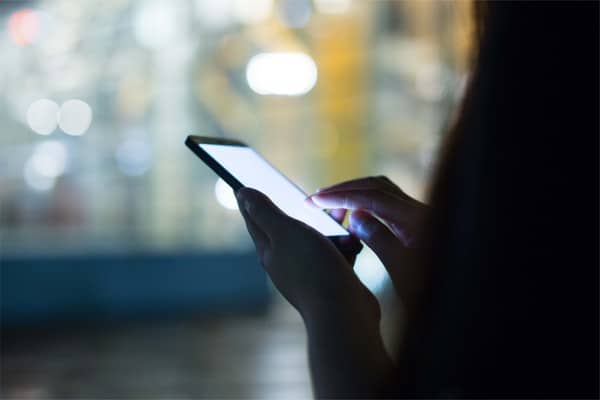
Imagine finally getting into bed after a long day at the office. It’s nice to wind down at the end of the day with a cell phone in hand, scroll through social media, watch a show and text friends. Scrolling through a phone can be a nice distraction from a racing mind, especially when falling asleep is a challenge.
However, the time spent scrolling down the newsfeed or Facebook wormhole can be detrimental to your health. The blue light that radiates from items like phones, computers and other electronics can put your health in danger. But what exactly is blue light and its effects on overall health?
What Is Blue Light?
Blue light is an example of electromagnetic waves emitted by electronic objects in blue wavelengths. When it comes to wavelengths, the longer the wave, the less energy it transmits. However, blue light has short, high-energy waves almost as high as the sun’s UV rays, which we know to cause skin, eye and other bodily damage.
The Effects of Blue Light
There are many harmful effects caused by blue light, including damage to the eyes and skin, headaches and sleep disorders.
The Effects of Blue Light on the Eyes
Blue light can strain and decrease eyesight. This is because the cornea and lens protect the light-sensitive retina at the back of your eye from damaging UV rays but not from blue light. Studies on animals show that blue light has the potential to damage even the retinal cells.
Blue Light and Sleep
One Harvard study indicated that exposure to light can affect circadian rhythm and that people who are generally more exposed to light at night are predisposed to diabetes or cardiovascular issues. Blue light signals the brain to wake up. One study showed that even minor exposure to blue light could slow down melatonin release. This is why people recommend turning off electronics at least three hours before sleeping.
Can Blue Light Cause Headaches?
Researchers found that blue light can worsen migraines and increase head throbbing and muscle tension. However, some researchers suggest that people prone to migraines may have nerve pathways and light receptors in their eyes that are particularly sensitive to light, so blue light may not be the culprit.
The Effects of Blue Light on the Skin
Blue light can also negatively affect the skin, but some researchers have discovered specific healing properties attached to it. For example, some people use blue light to treat acne, although other research shows that blue light from electronic devices can lead to rapid aging, skin cell death or swelling.
A Parting Reminder
While it’s nice to end the day scrolling through text messages, catching up on television shows on a tablet or finishing up some work, blue light can disrupt numerous bodily functions, such as sleep, and harm your eyesight. Additionally, blue light can cause headaches and even harm the skin due to the electromagnetic waves it emits. Try to limit screen use and make sure to allot some time away from blue light before going to sleep.






0 Comments